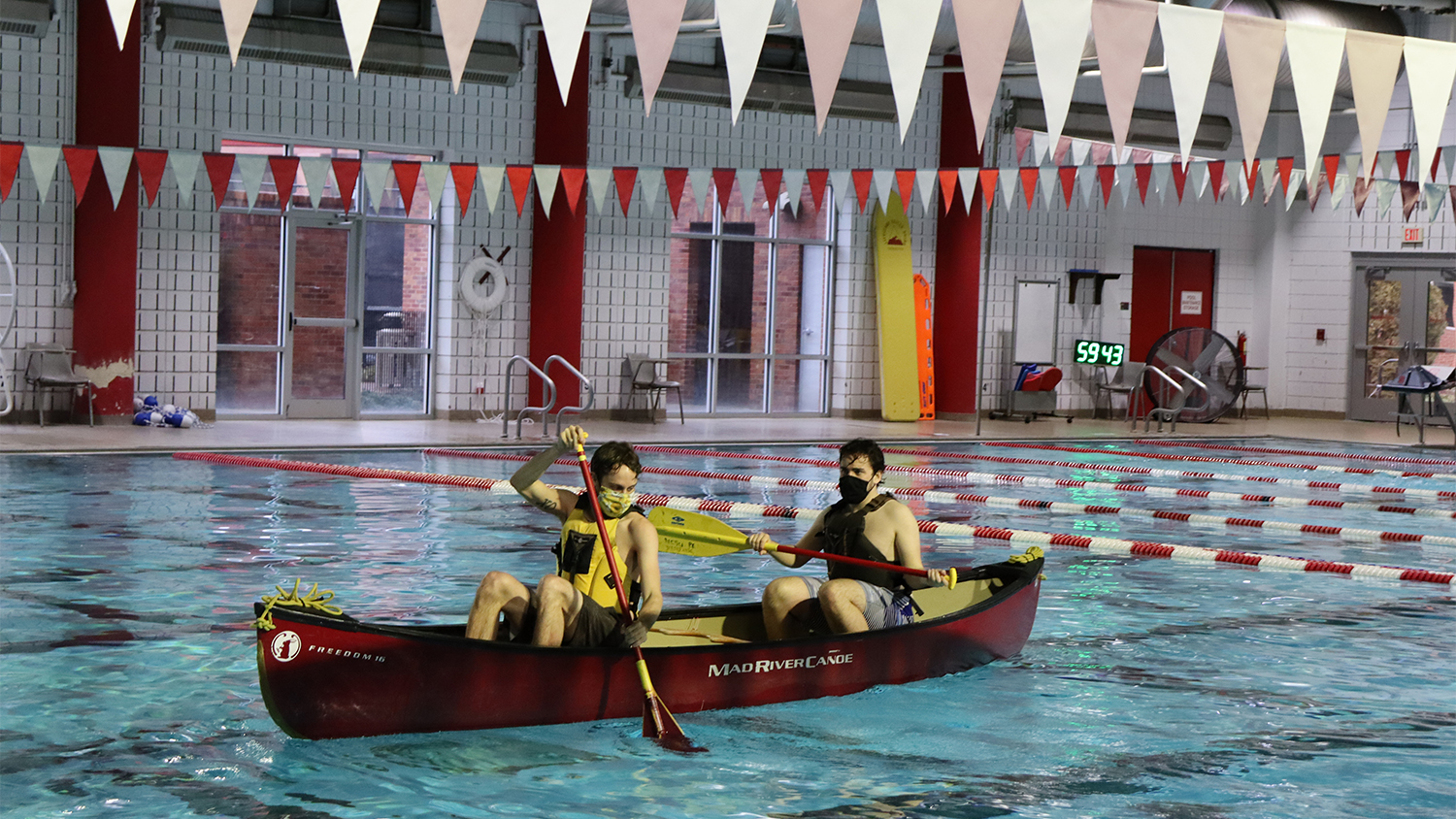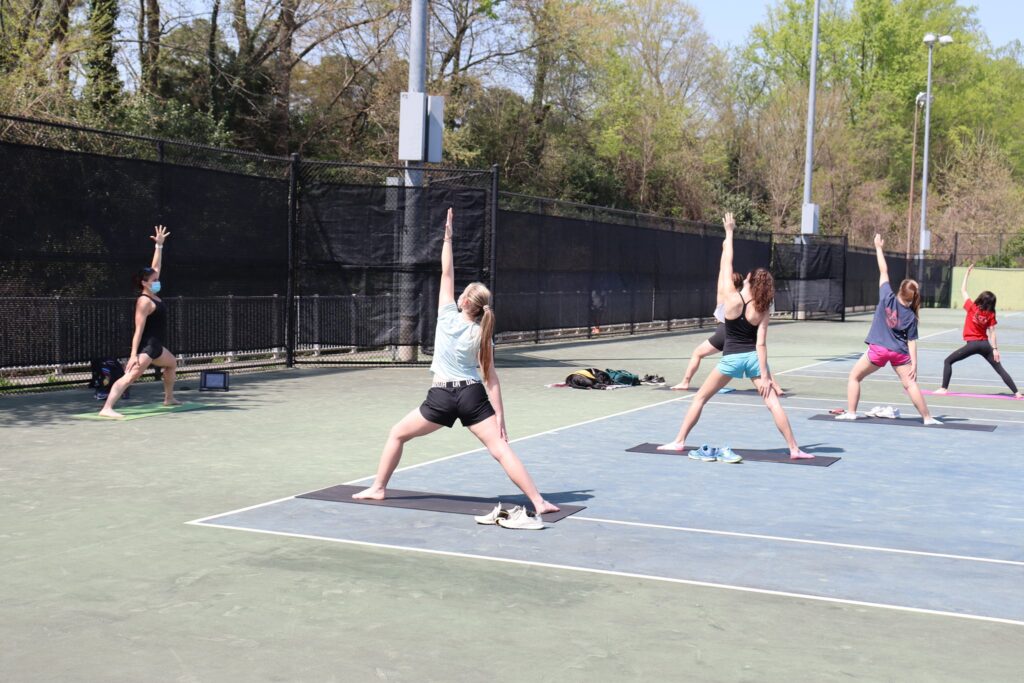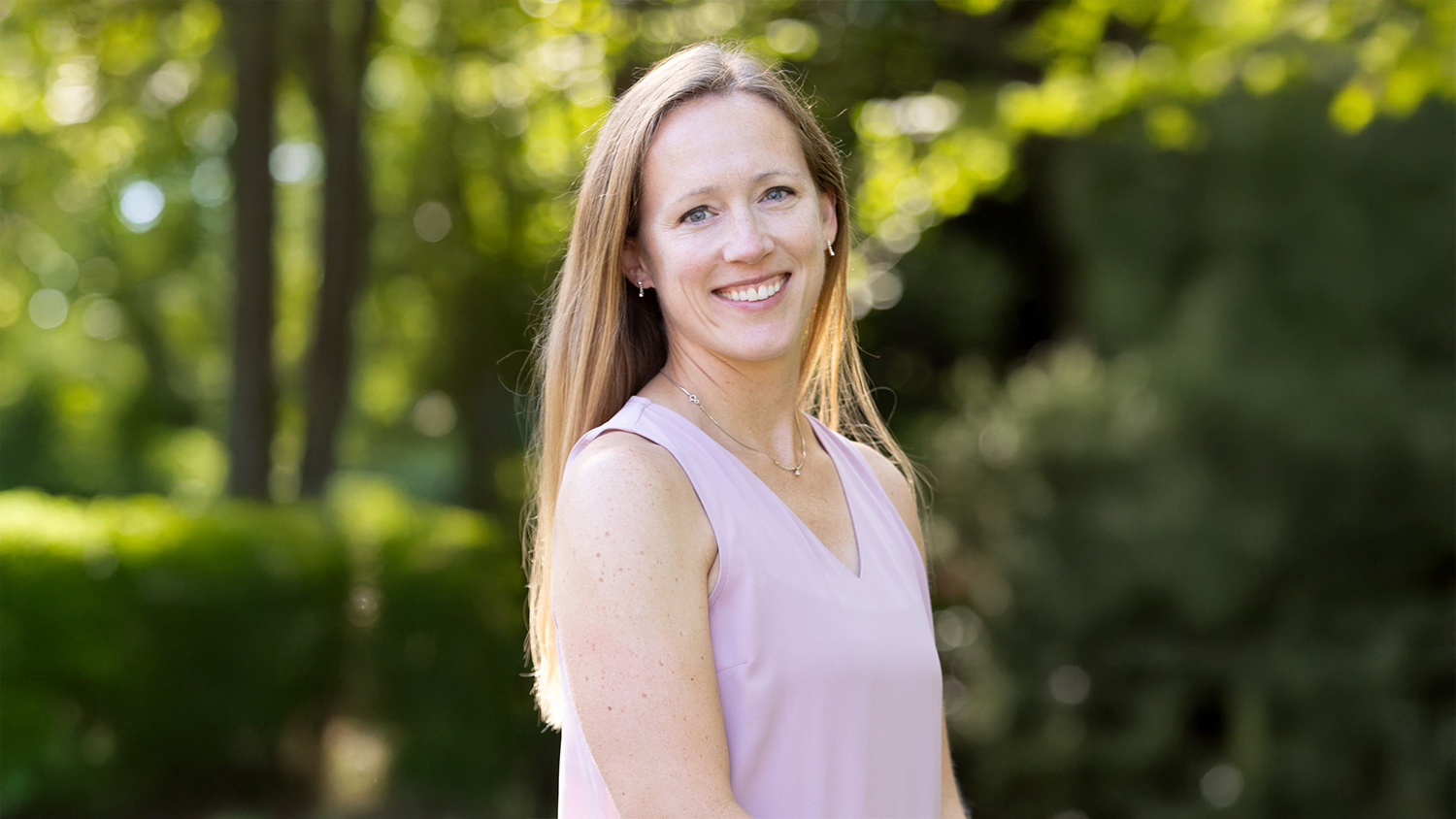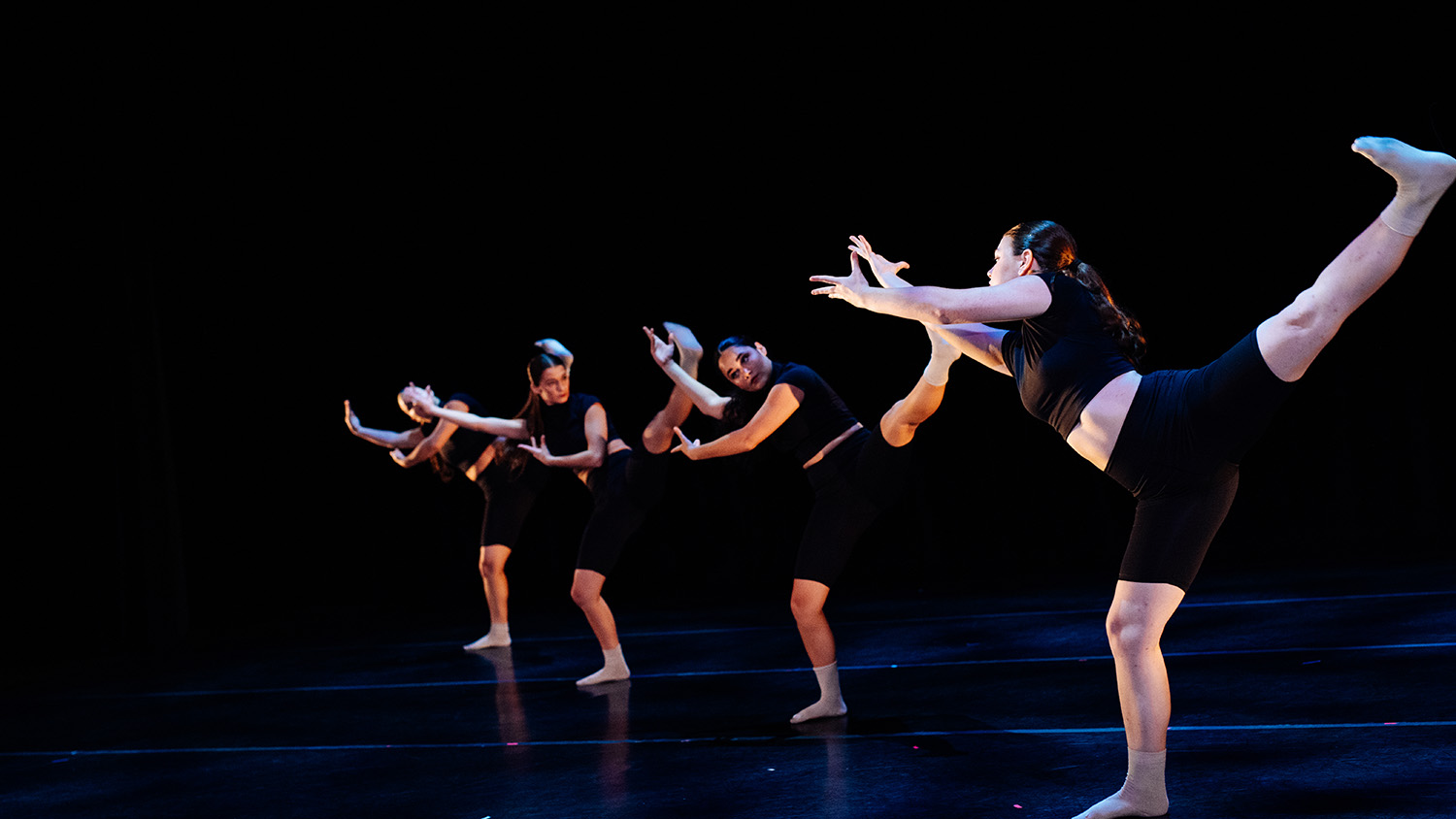Get to Know the Department of Health and Exercise Studies
As part of NC State’s General Education Program requirement, every undergraduate student takes classes in the Department of Health and Exercise Studies. However, the department has much more to offer, including several minors and community building experiences.

By Caleb White, DASA Marketing and Communications intern
As part of the Division of Academic and Student Affairs and University College, the Department of Health and Exercise Studies (HES) fosters an inclusive academic environment to educate and inspire students to build and sustain a healthy body and mind for lifelong productivity and wellbeing.
Each year, nearly 15,000 students enroll annually in on-campus and distance education sections, thanks to the efforts of more than 30 faculty and instructors. However, HES is far more than just exercise, as courses create communities filled with diverse students from different majors, minors and backgrounds, providing collaborative and interactive experiences.
We spoke with Lindsay Rusczak, administrative and marketing assistant for HES, about the department’s fitness initiatives, their adjustments since COVID-19, and ways that students can get involved:
Tell us about the Department of Health and Exercise Studies and its role at NC State?
HES is one of the oldest academic departments at NC State, approaching its centennial anniversary in 2023. NC State’s General Education Program (GEP) requirement that students complete HES credits has been in place since the department was established, which illustrates the university’s long-standing commitment to the health and wellness of our community.
We are a unique academic department because, through the GEP requirement, we see every undergraduate student during their time at NC State. With this opportunity, our mission is to foster an inclusive academic environment in which we educate and inspire students to build and sustain a healthy body and mind for lifelong productivity and wellbeing.To achieve this, our focus is two-fold: we offer five academic minors and offer GEP courses. We have students who go beyond the required two HES credits because they want to explore more of our course offerings. Other students find that taking HES classes helps manage stress and provides dedicated time to be active and prioritize wellness.
We’ve really tried to broaden our offerings for students with diverse interests, and to help students discover new passions. Over time, the department expanded its offerings to nearly 100 different types of activities. Many students discover a new favorite activity or a career path from trying classes that wouldn’t otherwise be available to them, such as scuba diving, karate or rock climbing. And, students learn from faculty who are not only experts in different academic disciplines with years of practice, but also enjoy sharing their passion with students at any experience level.
How does HES help students reach their academic and fitness goals?
Many students take HES classes not just for the credit, but to gain skills in a certain field. We aim to provide the best education, training and experiences to prepare students for their intended careers. For example, students in the sports science minor often apply to graduate school for occupational and physical therapy. By the time they finish the minor, those students will have had coursework in anatomy, physiology, nutrition and health behavior, and have the foundational knowledge needed for graduate school.
Other students come into HES classes with specific fitness goals in mind, or they develop them during the class. Whether it is being able to do more push-ups, increase body mass, develop a fitness plan or learn mindfulness, we will help each student achieve their goals in a safe, educational environment.
Tell us about the HES curriculum and the minor degree options in the program? Also, what is the Take 8 at NC State program?
Our curriculum includes a variety of both activity and lecture courses, and courses for our five minor programs. Students must take two credits in health and exercise studies before they graduate. One credit must come from our 100-level offerings, which include fitness and wellness courses focused on the fundamentals of health-based fitness. The other credit may be a 200-level activity course which teaches the skills, history and concepts of physical activities and sports.
We offer minors in outdoor leadership, coaching education, health, sports science and dance. Oftentimes, a student will take one class in a minor as their GEP requirement, realize they have an interest in and want to specialize in that area of coursework, and enroll in the minor. Many of our 200-level classes fulfill minor requirements. Other students see our minors as an opportunity to gain a formal education in a specific field that may not be offered anywhere else at NC State or at other colleges. For example, students interested in rock climbing or coaching can start to turn those interests into careers by minoring in outdoor leadership or coaching education.
Take 8 at NC State is a program to encourage students to stay active each semester and to dig deeper into HES course offerings by taking more than the required two credits. Students who complete 8 credits of activity classes from the 100-level and 200-level classes before graduation receive a HES Take 8 at State t-shirt, and those who complete 4 credits receive a HES water bottle. Beyond the prizes, our goal is that students build lifetime skills committing to health and wellness, and stress management. Taking a class each semester builds structure for regular activity and academic disciplinary exploration. The Take 8 at NC State program started in 2010, and so far we’ve had over 400 students complete it.
How has HES adapted and how have classes changed during COVID-19? Assuming the university returns to normal operations in the fall, are there any virtual experiences or aspects of the program that you expect to continue offering moving forward?
Moving classes online is challenging for any department at NC State, and moving classes that primarily occur in the water, on fields or even a rock climbing wall was even harder. However, our faculty quickly adapted to teaching their classes online because they needed to keep classes moving forward. With about a 48-hour timeframe, we were able to successfully transition over 230 class sections online without skipping a beat. Some classes were able to meet synchronously over Zoom, such as yoga and dance classes. Others, such as sea kayaking, required more creativity, adding in pre-recorded lecture videos and reading materials to supplement activity-based learning.
We’ve found that students enjoy having a hybrid class setting, where half of the class is online and in-person each week. This reduces the number of students in each class, yet all of the students in the class have the chance to learn in person. We will continue to offer hybrid classes in the fall if it is necessary to limit the number of students in class at the same time.

What is something that students might not know or realize about HES?
We provide so many opportunities for students beyond the required two classes. Students may come to NC State and not explore our courses beyond taking their HES credits, but we encourage them to look into our other offerings. College is the time to explore your interests, and it’s easy to just take the necessary classes for your major without seeing what else is out there. We have opportunities for students to engage in research, gain certifications and practical skills, and travel around the country, all while receiving college credit. Many of our classes allow students to pursue hobbies and personal interests in an academic setting, while training and learning from faculty who are disciplinary leaders in their respective fields. Students can also pursue independent studies or fulfill requirements for the University Honors Program.
Anything else you want the DASA and NC State community to know?
Yes, we are proud of the accomplishments of HES faculty, and our unique commitment to IDEA (Inclusion, Diversity, Equity, Access) that comes from the GEP requirement.
In addition to holding advanced and terminal degrees in their respective fields, many faculty are also disciplinary experts who regularly present regionally, nationally and internationally.
The HES GEP requirement provides us with a unique opportunity and responsibility. This is the only place on campus where all undergraduate students are together, regardless of their areas of study. Our classes reflect the truly diverse nature of NC State as we teach students of different geographic and religious backgrounds, genders and sexual orientations. That means we have a responsibility to provide access, be inclusive, and build community and a sense of belonging. There are several ways in which these already happen, such as:
- Offering almost 100 different types of activity courses which provide access students may have not previously had, and to address diverse interests;
- Most classes do not require additional fees or purchasing specialized equipment;
- Specialized courses for specific populations (100 level sections for students with ADHD, and Adapted PE for students if they are unable to participate in other sections);
- Offering beginner level access to most disciplines. For example, you do have to have taken golf or ballet prior to enrolling;
- Small class sizes which allow for more faculty and student interaction, and lastly,
- Inherent in the nature of the disciplines in our department is team- and community-building.
These two aspects of our department are not mutually exclusive. Our accomplished faculty are essential to providing inclusive and accessible classes, and the diverse student population enhances the instruction, skills and perspectives of our faculty. We are excited for how this relationship will further impact not only the Department of Health and Exercise Studies, but the larger NC State community as well.


